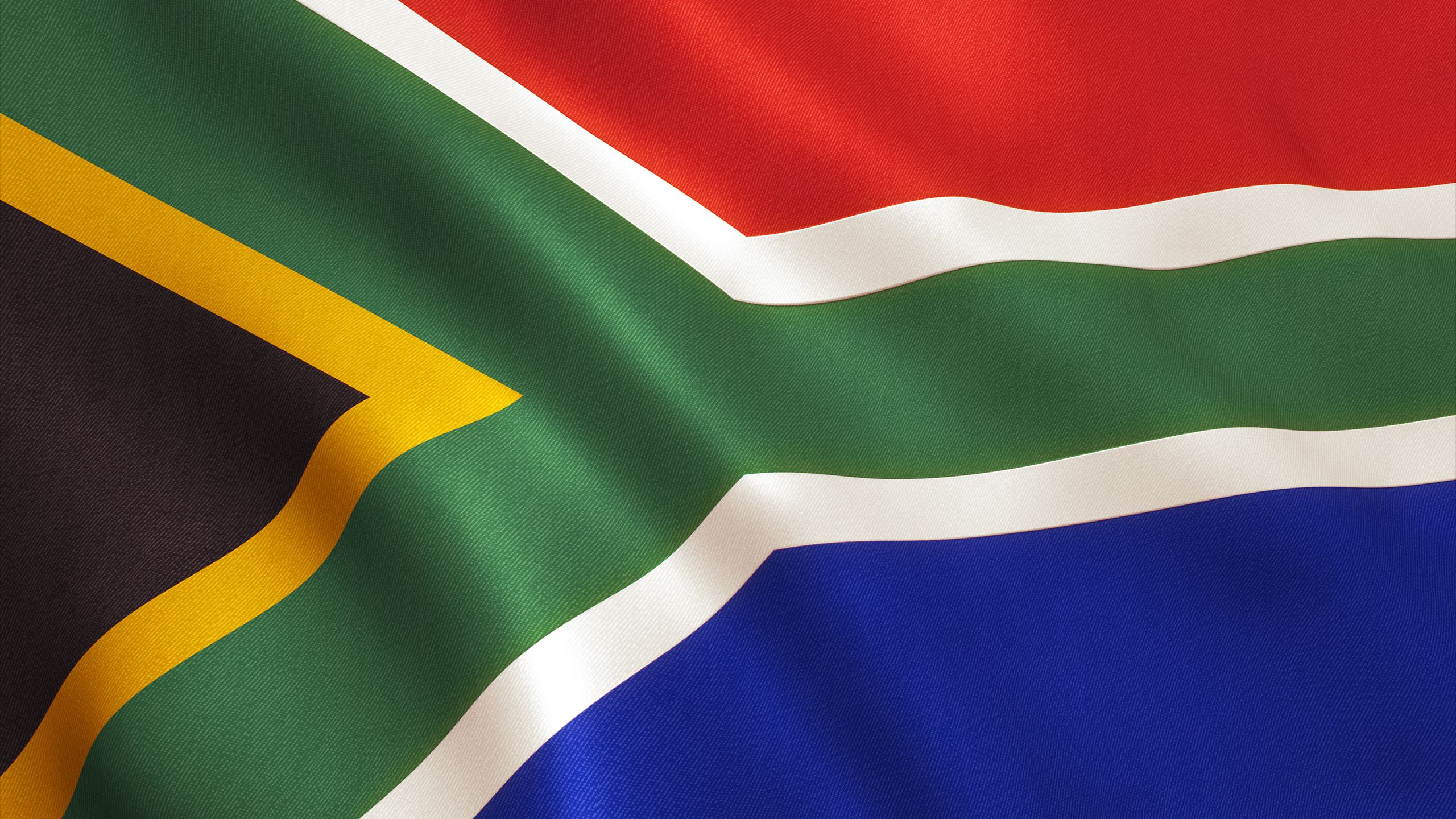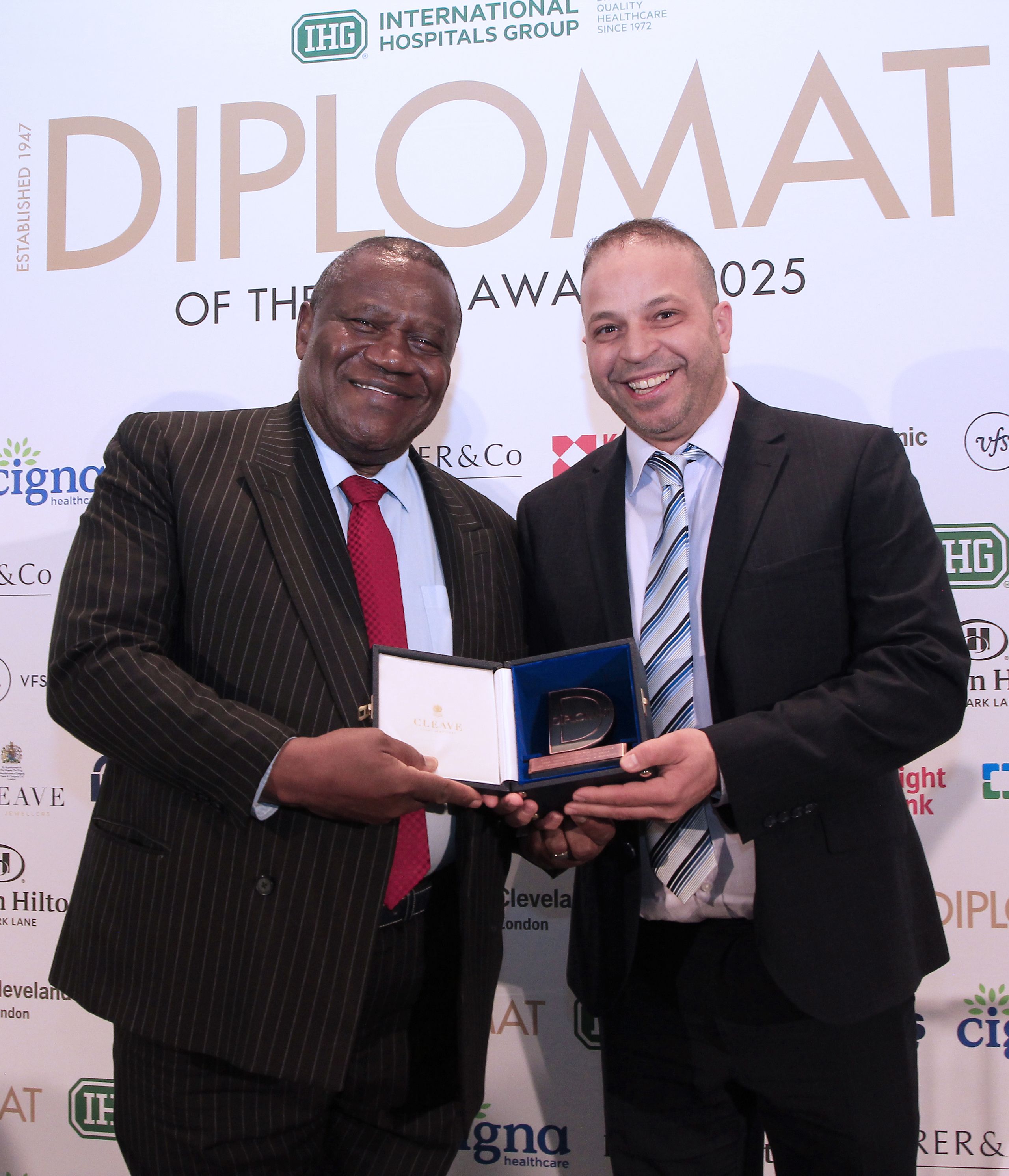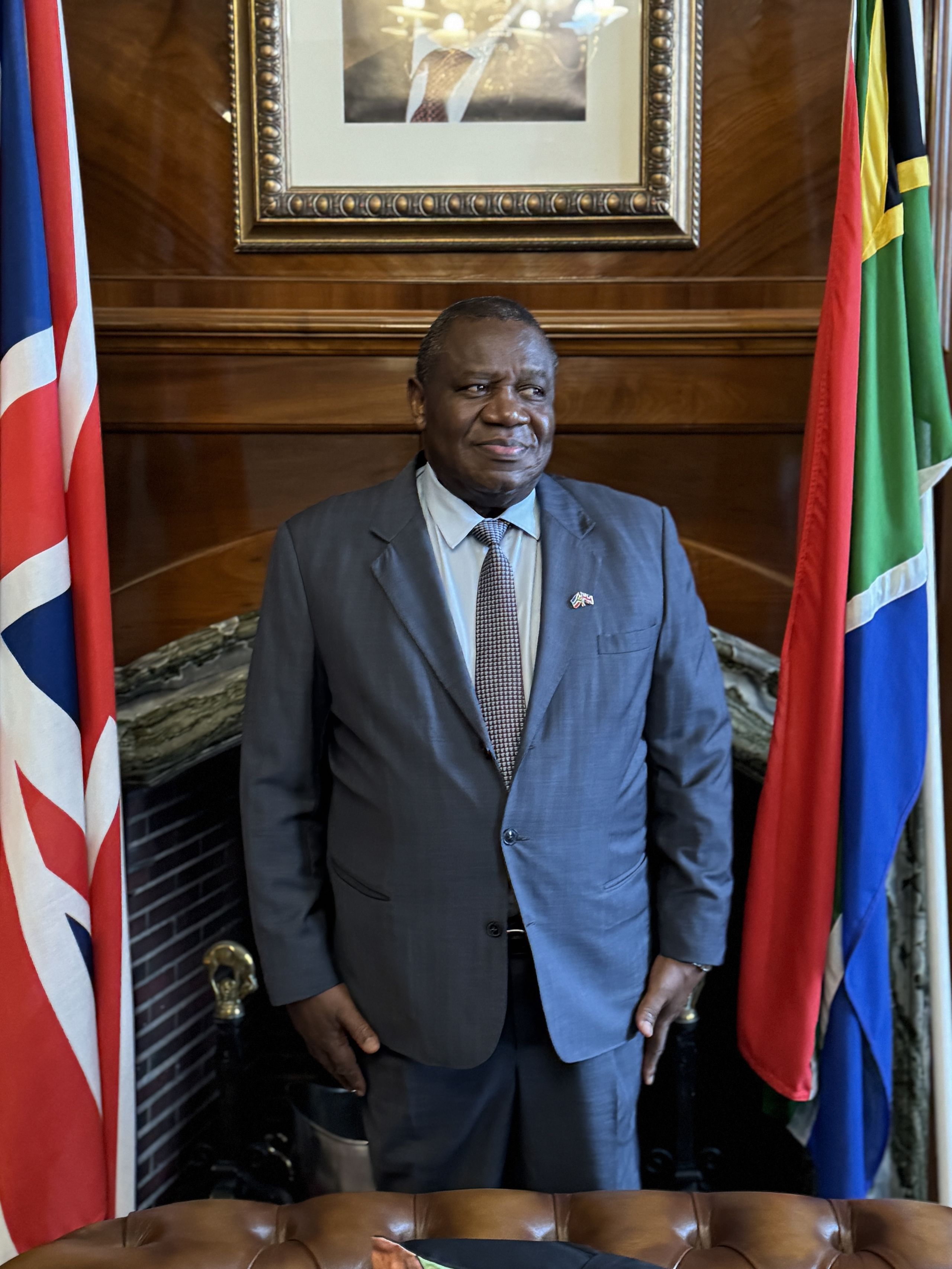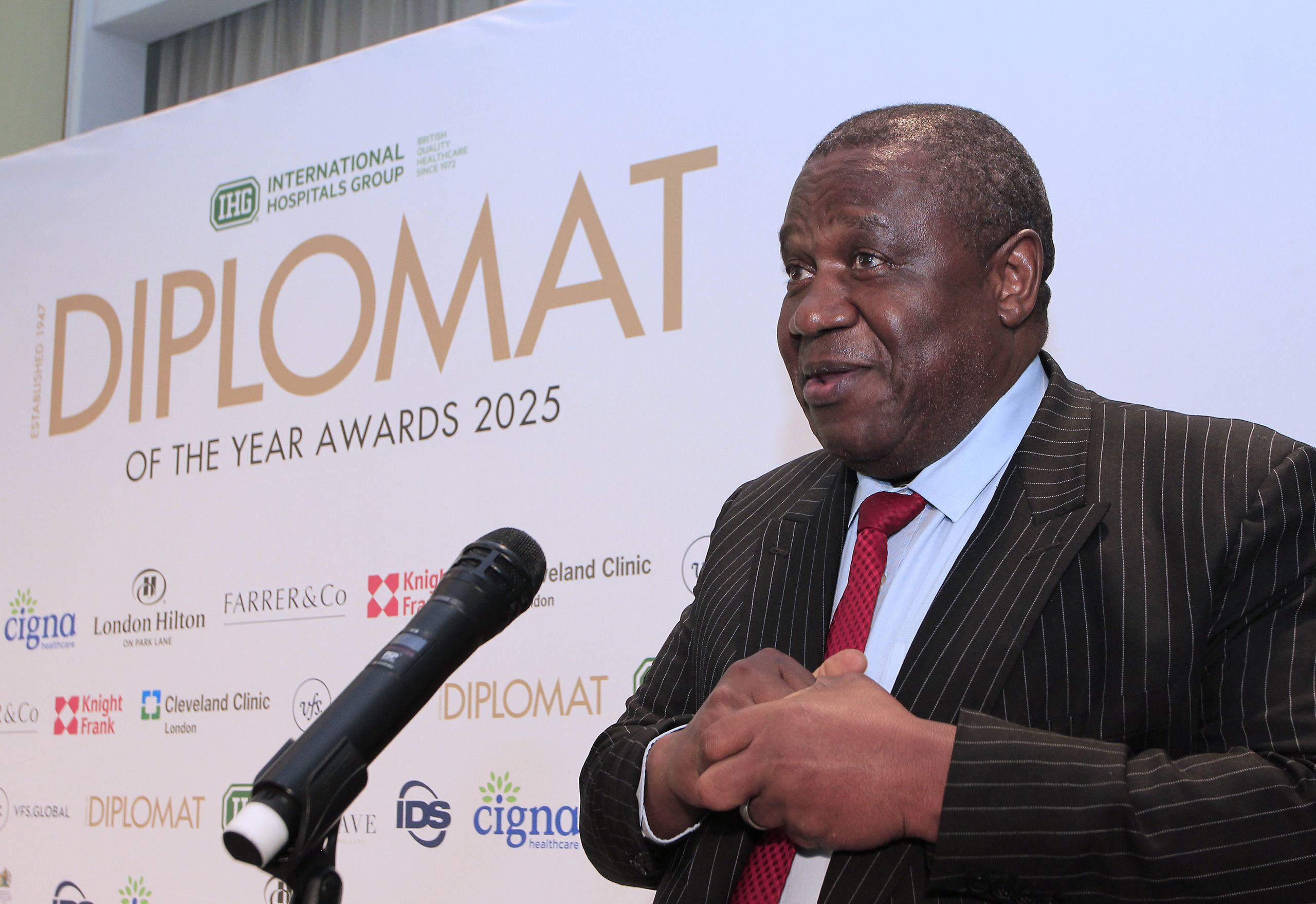His Excellency
Mr Kingsley Mamabolo
High Commissioner of South Africa

Four months after South African High Commissioner His Excellency Kingsley Mamabolo’s arrival in July 2022, President Cyril Ramaphosa arrived in the UK for a state visit. “This was a great privilege for South Africa to be the first visitor to the new king after HRH’s accession to the throne.” He admits this came with great advantages. “South Africa was catapulted into the public eye, and we had an opportunity to share the positive story of our historical, social, economic and investment ties with the UK. Our relationship can be traced back to the struggle against apartheid, when support from the UK was strong. There remain core principles that tie both countries together." This was the ideal platform to kick off his posting in the UK. “South Africa has a special place in the hearts of British people, and we want to hold on to this, regardless of which political party is in office.”
Growing up in Soweto, High Commissioner Mamabolo was exposed to the tribal rivalries, hardships and violence endemic to South African townships from an early age. Angry at the systematic discrimination and marginalisation of apartheid and eager to do his bit for the liberation of his homeland, in 1976 he joined the new recruits of the African National Congress (ANC). He recalls “a rebellion growing inside of me, when I fundamentally realised that something was very wrong with the system.”
After his involvement with the Soweto Uprising, at the tender age of just twenty-one, he was forced into exile to avoid arrest. Smuggled across the border into Eswatini, he hid in a farmer’s maize truck. The young diplomat embarked on what was to be an illustrious career within the ranks of the liberators. Joining the diplomatic efforts of the ANC, he spent 20 years in exile in various countries, “highlighting the atrocities of apartheid.” His first diplomatic mission came in 1978, when he was sent to Tanzania to be Deputy Head of Mission. Postings followed Mozambique, Angola, Zambia, Zimbabwe and even Cuba.
While exiled in Mozambique in 1988, High Commissioner Mamabolo witnessed an explosion that nearly killed Albie Sacks, who at the time was an ANC supporting Judge. The anti-apartheid campaigner lost his right arm and was blinded in his left eye. “They put a bomb in his car, and I saw the explosion. I wasn’t far away. It remains a constant reminder of the pressure and danger we were working under. They were putting bombs everywhere to try and eliminate people. No one knew who was going to be next.”
Soon after his return to South Africa in 1994, he became the first High Commissioner of a democratic South Africa in Zimbabwe. Then on to Addis Ababa, just as the Organisation of African Unity was transferring to the African Union in the early 2000s. “At the time, globalisation was happening at the expense of Africa, not along with Africa. We had to consider what kind of Africa we wanted. South Africa was riding high with Mandela, so there were great expectations for what South Africa could do for the continent.” At the heart of the organisation, Heads of Mission were extremely involved in this political and economic transformation. “It was a very interesting time for us. We helped form the new economic policies for Africa’s development, as well as considering what good governance and the rule of law would look like.”

A further multilateral role followed as South Africa’s Permanent Representative to the United Nations, when South Africa was chairing the G77. “It was a tricky time, as we didn’t all have the same opinions, but we all had to eventually agree and come to the same position.” He also served as High Commissioner to Nigeria and as Special Envoy to the Great Lakes where he played a central role in the peace processes in Burundi and the Democratic Republic of Congo.
As Joint Special Representative for Darfur and Head of the United Nations-African Union Mission in Darfur, High Commissioner Mamabolo led a hybrid mission that focused on peacekeeping and peacebuilding. His role was to intervene on the behalf of the UN, leading a mission that included 16,500 troops. “The job was difficult, and we did achieve things here and there, but the conflict continued and has now escalated. Unfortunately, sometimes the situation in Sudan is forgotten, as people focus on other conflicts around the world. But we need to keep paying attention.”
In the UK, High Commissioner Mamabolo’s position has been supported by “the well-rounded relationship between the British and South African people. Both countries really enjoy competitive cricket, rugby and football. British people love to travel to South Africa – particularly during the UK winter months. In terms of education, we are learning a lot from each other through university exchanges.” He continues: “Despite the ups and downs that we have had in South Africa, there is still a lot of interest in the country from the UK. It attracts a lot of investors; it is the most industrialised country in Africa. It has the most advanced banking system, but more importantly we have the rule of law and reliable courts, which provides stability for those who want to invest. My mission is to continue to attract investment to South Africa and convince the British that it’s a good place to do business. We have been boosted by the new Government of National Unity. The volume of trade between South Africa and the UK hovers around £10.9 billion, and we want to increase that figure and use it to ensure there is employment and improved conditions for people in South Africa, so everyone benefits.”
Debt continues to be a major issue in South Africa’s climate diplomacy and beyond. “The biggest issue in Africa today is debt restructuring, one that is exacerbated by climate challenges that Africa faces. Most countries with serious climate challenges also have serious debt issues. We must help with debt restructuring, which is negatively impacting so many countries, but specifically the issue of interest accrued by this debt.” He explains how South Africa has been addressing this issue at COP meetings and in forums including the Commonwealth and the G20. “We are not the major contributors on climate problems, but we don’t have the facilities to adequately address these issues.”
Despite these problems, High Commissioner Mamabolo explains that South Africa has “a powerful ability to negotiate, mediate and move away from conflict. The experience we have gained from this over the years, is our biggest soft power asset. We believe that the world stands a better chance if we can work together globally and cooperate and collaborate. We can’t be inward looking; we must embrace multilateralism and respect the international rules-based system.”

On top of his role as High Commissioner in the UK, he has recently published a book about his life. “It’s a book about how I grew up, about the struggle, and how I became an angry and rebellious young man and the struggle against apartheid. But it’s also about what was happening on the continent of Africa at the time, and the struggle for Africa’s survival.”
Helping Africa achieve its potential, is clearly one of the High Commissioner’s great passions. “Africa is the future. Its vast young population should be a huge asset, but it is essential that we give these young Africans – who can contribute a great deal to Africa – the opportunities that they deserve. We are looking at many possibilities, including artificial intelligence to speed up unlocking Africa’s potential.” He continues: “Africa also has critical minerals which are important for so many things, from cell phones to airplanes. We don’t want repetition of what happened during the colonial period, where these minerals were just removed without adding any value. We need to make it a win-win solution for everybody, so the African people also benefit. If African leaders can plan properly, Africa can indeed become the future globally.”
While in the UK, High Commissioner Mamabolo enjoys theatre and museums, and golf is also a hobby. “I’m certainly not Tiger Woods, but rather a tiger in the woods. I’m constantly looking for the ball!” he declares. He was recently presented with the Freedom of the City of London. Dating back to 1237, this honour, traditionally reserved for individuals who have made significant contributions to their fields, recognises the exemplary achievements and enduring ties of both honourees to the City of London. “This was something remarkable, and I will remember this for a long time.” He was also the recent recipient of the ‘2025 Diplomat of the Year from Africa’ award, so he has certainly made an impact during his posting in the UK.
The High Commissioner reflects on a career from African freedom fighter to top international diplomat and peace negotiator. “Most of my roles have been in peacekeeping, mediation and negotiation. They say once a negotiator, always a negotiator. Whether it is at the UN, the AU or within the Commonwealth, I am always negotiating on South Africa’s behalf.”

